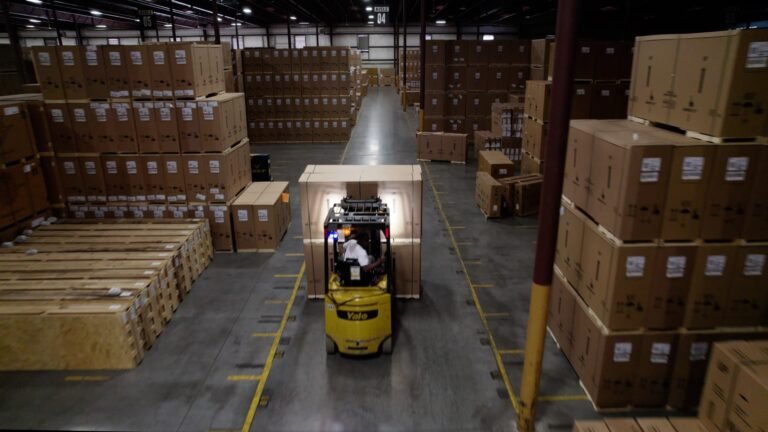To offset the rising costs of tariffs and trade war uncertainty, companies are using U.S. Customs-sanctioned foreign trade zones (FTZs) and bonded warehouses to delay or reduce product taxes.
FTZs have a long history dating back to a previous period of trade conflict, created during the Great Depression by Congress to encourage international trade and boost exports at time when the Smoot-Hawley tariffs were as high as 53%.
Companies importing raw materials, semi-finished, or components from foreign countries to an FTZ or bonded warehouse are essentially in a tariff bubble, meaning when they enter the U.S. they are stored duty-free.
Once inside an FTZ, a product can be assembled or modified. Duties are only collected after a product leaves the zone and enters U.S. commerce. Products can be stored in an FTZ indefinitely. Bonded warehouses have a limit of up to five years.
There are FTZs in all 50 states and there are approximately 2,240 FTZs in all across the nation, according to U.S. Customs.
For companies caught in the crossfire of Trump’s trade war, preserving cash is king.
By delaying duty payments, “FTZs and bonded warehouses essentially frees up a company’s cash flow,” said Jason Strickland, director of sales at logistics firm Givens. “There is also the added benefit that if a product is manufactured in an FTZ and is re-exported abroad, no duty payments are incurred at all.”
Givens Logistics, Chesapeake, Virginia, May 2025.
Shawn Baldwin | CNBC
Before the 2025 global trade war, companies that manufactured products in an FTZ had what is known as an “inverted tariff” benefit. That means the company had the option of paying a lower duty rate on the finished product versus paying the higher duties on the individual components brought into the manufacturing process.
Companies that have operated inside FTZs include automakers Ford, GM and Chrysler, as well as General Electric, Intel and Sony. According to the World Free Zones Organization, FTZs were also used by Pfizer while it was developing the Covid vaccine. The program enabled Pfizer to produce shots without incurring additional duties on the drugs’ components and store the vaccine until it received FDA approval.
But President Trump ended that rule by way of recent executive orders, and for companies like Regent Tek Industries, which manufactures liquid road markings used by road crews to make the lines on the nation’s roads, byways, and highways, that’s become a big problem, resulting in millions of dollars in extra tariffs.
“Our product is basically like baking a cake,” said Helen Torkos, president of Regent Tek. “If you’re missing one ingredient, you can’t make that cake. We cannot source all of our components here. We are paying around 7% more now because the inverted tariff option is no longer available to us.”
Without the benefit of the FTZ inverted tariff, many companies quickly shifted to bonded warehouses. Strickland described the demand to CNBC as being through the roof.
Companies can import products in a bubble under a higher tariff rate, and store without paying duties. But unlike the locking in of tariff rates on FTZs, if the tariff drops while a product is in a bonded warehouse, the company can release their product and pay the lower tariff rate.
“At the end of the day, the goal is to protect your cash flow,” Strickland said. “You don’t want to bring in all your goods and spend your cash flow against tariffs that may not be here in, you know, six weeks, six months, if you can defer until the market is ready to consume those goods. I think that’s a win-win.”
Watch the full video above to learn more about these trade war tariff hideouts.

